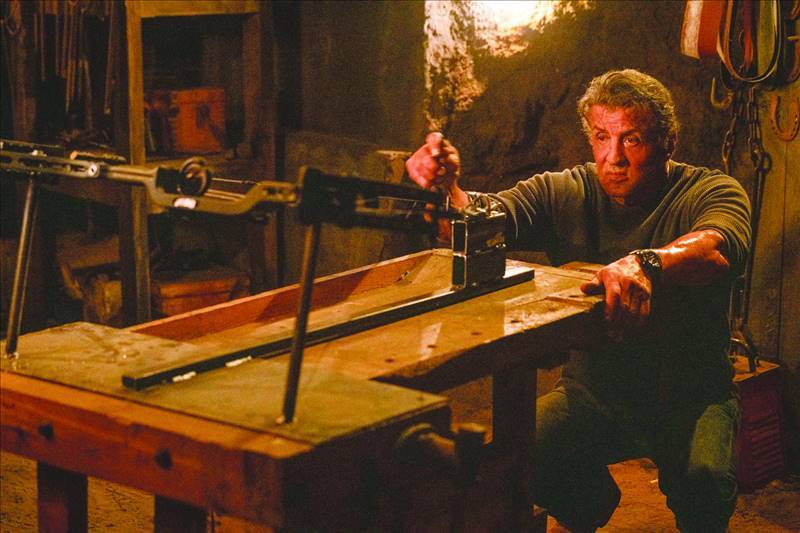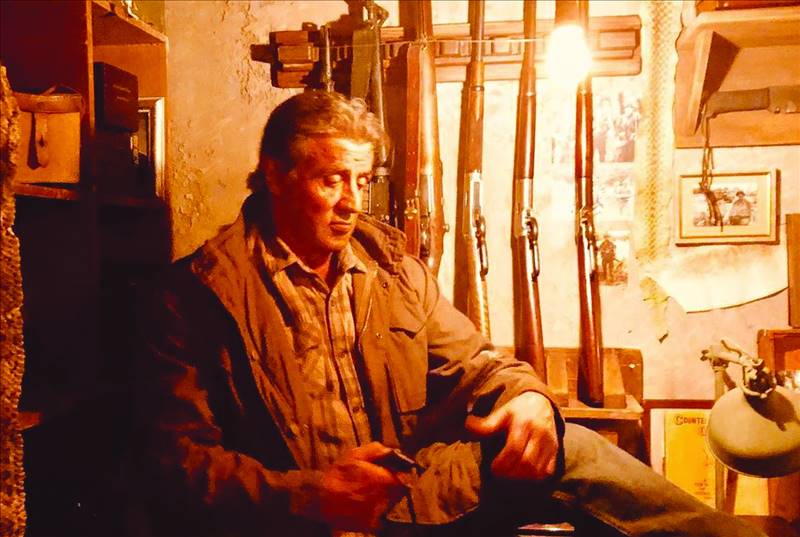
As far as tutorials for our filmmakers go, which is something we regularly mention in this space, the chronology of recent Hollywood releases in Pakistan appears to be a course designed for aspirants. One after the other, a famous name is being screened in the country, often from varying genres, giving the pupils a well-rounded schooling.
Once Upon a Time in Hollywood had the vintage feel, but with a tangible Quentin Tarantino stamp. Hobbs and Shaw overlapped with Once Upon a Time in Hollywood in a few aspects but was completely distinct in most others. And last week we discussed It Chapter Two, which presented the challenge of mastering the sequel and, of course, put forth the sequel to the highest grossing horror film of all time.
Now, paradoxically, action has always been a genre with a high demand in our neck of the woods. But traditionally, especially in the Punjabi cinema, the action has been the monolithic gandasa-wielding of the 1990s and early 2000s with filmmakers churning out virtually the same sequences, as the storyline sometimes did not even bother to give the characters new excuses to fight.

Waar redefined Lollywood in the cinematography department, as far as the war genre is concerned. But, again, war is almost an entirely different genre to the action thrillers, where often a solo protagonist is going all-blazing – requiring a completely different setting to the battlefields, be they traditional or contemporary.
Indeed, 1980s Hollywood action flicks have had a large fan following in the country. The Terminator franchise and to a less extent the Die Hard films became immensely popular back in the day.
But there was one action character that probably garnered more popularity than any of his peers – something that hasn’t come close to being matched to this day: John Rambo.
Where First Blood has its iconic status in the West, it has mass following in Pakistan as well. Of course it was John Rambo’s popularity that pushed Afzal Khan to evolve his Guest House character and take up John Rambo as a full-time screen name.
While First Blood came out in 1982, and was followed by a couple of sequels in the 1980s, the Rambo franchise, has made recent attempts to rekindle the nostalgia affiliated with the films over the past decade – initially by pushing forth the fourth installment in 2008. Although of course “nostalgia” is perhaps too sensitive an emotion to be in any way affiliated with anything related to Rambo.

Eleven years after Rambo IV, the fifth and likely the final installment of the franchise was released last month the world over, with the film predictably enjoying considerable success in Pakistan as well.
Now, the one thing that united all Rambo films is the almost involuntary flack that they get from the critics. Even the era-and-genre-defining First Blood was initially panned before it eventually garnered popularity, and went on to become one of the films that had an empire of its own ruling over movie-watchers across the globe.
“Credibility” is the one question mark raised since First Blood, before the audience made it clear that they absolutely weren’t looking for any authenticity as far as John Rambo is concerned. Similarly, the excessive gore, hyper-nationalism and xenophobia predictability affiliated with an action franchise based on a war-hero has got the expected stick from the Left over the decades.
In that regard, this was probably the worst time to release Rambo V, given that the rise of right-wing populism across the world has pushed liberal critics to be even louder in their skepticism towards any piece of art venturing deep into the jingoistic zone. This is especially true given the current regime in Washington and the fact that Last Blood focuses on Mexico.
Even so, doing a liberal critique of a Rambo film makes about as much sense as doing a Marxist analysis of the Super Bowl. The franchise’s aficionados couldn’t care less about their beloved film’s political follies.
That’s because Last Blood will give them what every single film of the franchise offers: hardcore action, and Sylvester Stallone, even at 73, delivering sequences like only he can. Any summary of the storyline here is redundant, because any offering of the Rambo franchise is always going to be about John Rambo.
However, what is also similarly obvious is that this might be the very end of the franchise too.
The Rambo generation has created a world based on the ideas that the franchise endorses, and their successors have a significantly more pronounced tendency of holding all forms of art politically accountable.
Once Upon a Time in Hollywood had the vintage feel, but with a tangible Quentin Tarantino stamp. Hobbs and Shaw overlapped with Once Upon a Time in Hollywood in a few aspects but was completely distinct in most others. And last week we discussed It Chapter Two, which presented the challenge of mastering the sequel and, of course, put forth the sequel to the highest grossing horror film of all time.
Now, paradoxically, action has always been a genre with a high demand in our neck of the woods. But traditionally, especially in the Punjabi cinema, the action has been the monolithic gandasa-wielding of the 1990s and early 2000s with filmmakers churning out virtually the same sequences, as the storyline sometimes did not even bother to give the characters new excuses to fight.

Waar redefined Lollywood in the cinematography department, as far as the war genre is concerned. But, again, war is almost an entirely different genre to the action thrillers, where often a solo protagonist is going all-blazing – requiring a completely different setting to the battlefields, be they traditional or contemporary.
Indeed, 1980s Hollywood action flicks have had a large fan following in the country. The Terminator franchise and to a less extent the Die Hard films became immensely popular back in the day.
But there was one action character that probably garnered more popularity than any of his peers – something that hasn’t come close to being matched to this day: John Rambo.
Where First Blood has its iconic status in the West, it has mass following in Pakistan as well. Of course it was John Rambo’s popularity that pushed Afzal Khan to evolve his Guest House character and take up John Rambo as a full-time screen name.
While First Blood came out in 1982, and was followed by a couple of sequels in the 1980s, the Rambo franchise, has made recent attempts to rekindle the nostalgia affiliated with the films over the past decade – initially by pushing forth the fourth installment in 2008. Although of course “nostalgia” is perhaps too sensitive an emotion to be in any way affiliated with anything related to Rambo.

Eleven years after Rambo IV, the fifth and likely the final installment of the franchise was released last month the world over, with the film predictably enjoying considerable success in Pakistan as well.
Now, the one thing that united all Rambo films is the almost involuntary flack that they get from the critics. Even the era-and-genre-defining First Blood was initially panned before it eventually garnered popularity, and went on to become one of the films that had an empire of its own ruling over movie-watchers across the globe.
“Credibility” is the one question mark raised since First Blood, before the audience made it clear that they absolutely weren’t looking for any authenticity as far as John Rambo is concerned. Similarly, the excessive gore, hyper-nationalism and xenophobia predictability affiliated with an action franchise based on a war-hero has got the expected stick from the Left over the decades.
In that regard, this was probably the worst time to release Rambo V, given that the rise of right-wing populism across the world has pushed liberal critics to be even louder in their skepticism towards any piece of art venturing deep into the jingoistic zone. This is especially true given the current regime in Washington and the fact that Last Blood focuses on Mexico.
Even so, doing a liberal critique of a Rambo film makes about as much sense as doing a Marxist analysis of the Super Bowl. The franchise’s aficionados couldn’t care less about their beloved film’s political follies.
That’s because Last Blood will give them what every single film of the franchise offers: hardcore action, and Sylvester Stallone, even at 73, delivering sequences like only he can. Any summary of the storyline here is redundant, because any offering of the Rambo franchise is always going to be about John Rambo.
However, what is also similarly obvious is that this might be the very end of the franchise too.
The Rambo generation has created a world based on the ideas that the franchise endorses, and their successors have a significantly more pronounced tendency of holding all forms of art politically accountable.

